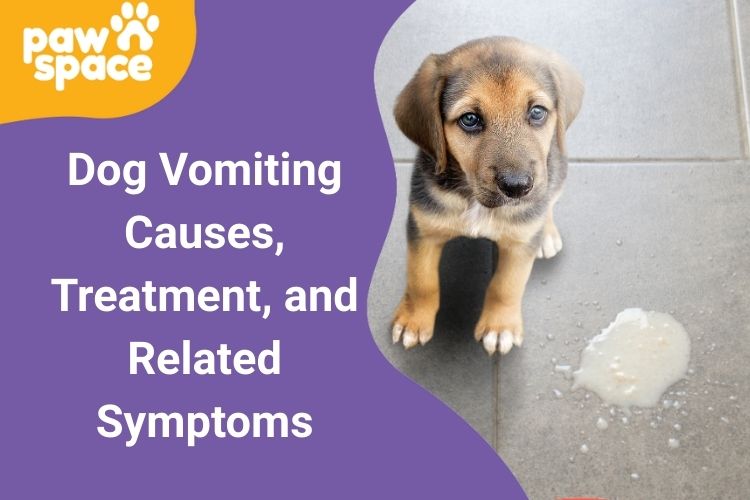It’s one of the most unsettling experiences for any dog owner: your dog walks away from his/her food bowl. Whether a sudden loss of appetite or a gradual cessation of appetite, the issue remains: Why is my dog not eating? While the occasional pickiness is inevitable, persistent loss of appetite can mean something is seriously amiss.
In this blog, we’ll explore nine common reasons your dog is not eating, what each might mean, and how to respond appropriately. Understanding the root cause is the first step toward helping your dog regain their appetite and stay healthy.

Table of Contents
Toggle- 9 Reasons Your Dog Won’t Eat – Why Is My Dog Not Eating?
- 1. Pickiness or Food Aversion
- What to do:
- 2. Illness or Infection
- What to do:
- 3. Dental Pain
- What to do:
- 4. Stress or Anxiety
- What to do:
- 5. Medication Side Effects
- What to do:
- 6. Recent Vaccination
- What to do:
- 7. Digestive Upset
- What to do:
- 8. Parasites
- What to do:
- 9. Metabolic and Aging Changes
- What to Do:
- When to Worry?
- Red flags are:
- Encouraging Your Dog to Eat
- Why Choose PawSpace?
- Conclusion
- FAQs
- 1. For how many days can a dog last without food?
- 2. Am I worried if my dog skips a meal?
- 3. Does stress cause my dog to lose appetite?
- 4. What do I give a dog with a tummy upset?
- 5. Is it normal for older dogs to lose their appetite and eat less?
9 Reasons Your Dog Won’t Eat – Why Is My Dog Not Eating?
1. Pickiness or Food Aversion
Others are finicky eaters. They might turn up their noses at food they’ve become tired of or not like the new brand or flavor. If your dog is not eating but otherwise appears to be healthy and active, consider whether perhaps the food is the problem.
What to do:
Try a switch to another protein source or adding a food top. Warm water or low-sodium broth can add flavor and variety. Do not do this too often, though, as it can reinforce finicky behavior.
2. Illness or Infection
Loss of appetite is a feature of numerous diseases, including gastrointestinal infections, kidney disease, liver disease, and cancer. If your dog is without appetite and shows vomiting, diarrhea, lethargy, or weight loss, consult your veterinarian immediately.
What to do:
Consult a veterinarian. Diagnostic tests such as blood work or radiography may be necessary to identify the underlying cause.
3. Dental Pain
Dogs with dental issues may want to eat but hurt. Some of the causes may include broken teeth, gum disease, oral tumors, or abscesses, which make it painful to chew.
What to do:
Check for such signs as drooling, mouth pawing, or foul odor. A veterinarian can perform a dental examination and suggest, which may include cleaning, extractions, or medication.
4. Stress or Anxiety
Dogs are sensitive to change. A new house, thunderstorms, separation from the owner, or a new pet can all cause stress that kills appetite.
What to do:
Set up a calm eating zone. Stay regular and offer reassurance. If anxiety does not dissipate, consult your vet about behavior therapy or stress-reducing supplements.
5. Medication Side Effects
Some drugs suppress appetite. Antibiotics, pain killers, and drugs for chronic illness can cause nausea or alter the sense of taste.
What to do:
Discuss the side effects of the drug with your veterinarian. They can reduce the dosage, switch drugs, or administer appetite stimulants.
6. Recent Vaccination
Some dogs lose their appetite temporarily after having been vaccinated. This usually passes in 24 to 48 hours.
What to do:
Monitor your dog closely. If appetite isn’t restored or other signs occur, contact your vet.
7. Digestive Upset
Nausea, bloating, or constipation may lead to dogs losing their appetite. Fatty foods, table scraps, or a change in food can induce gastrointestinal upset.
What to do:
Offer a bland diet such as boiled rice and chicken. Avoid treats and fatty foods. If symptoms persist, call a vet to rule out pancreatitis or other serious disease.
8. Parasites
Roundworms, hookworms, or tapeworms in the intestines can cause a variety of signs, including loss of appetite, vomiting, diarrhea, and gas.
What to do:
Schedule a fecal test. Deworming medications work, but the earlier it is caught, the lower the chances of complications.
9. Metabolic and Aging Changes
Older dogs become less hungry due to reduced metabolism, less activity, or disease from old age. They may also develop a loss of mental function that affects appetite.
What to Do:
Vary portion sizes and feeding frequency. Select senior dog food with improved palatability and nutrients. Frequent vet checkups are necessary to track age-related alterations.

When to Worry?
Skipping one meal by a dog isn’t always reason for concern. If your dog refuses to eat for over 24 hours, or has signs of illness, pain, or behavioral changes, it’s time to take action.
Red flags are:
- Vomiting or diarrhea
- Lethargy or weakness
- Weight loss
- Drooling or pawing at the mouth
- Refusal to take water
Early veterinary intervention can prevent complications and help your dog receive the treatment they need.
Encouraging Your Dog to Eat
If your healthy dog is not eating, try the following:
- Warming food lightly to enhance aroma
- Adding a small amount of wet food or broth
- Feeding in a quiet stress-free room
- Sticking to a regular meal schedule
- Limiting treats between meals
- Don’t over-force food or offer too many choices, which leads to fussy eating.
Why Choose PawSpace?
PawSpace is India’s biggest pet care network, developed by pet parents who insisted on better, kinder services for their pets. Here’s why we’re unique:
- Verified Caregivers: Sit, walk, and groom caregivers are background-checked and trained rigorously.
- 24/7 Availability: On-demand services whenever the need arises.
- Cage-Free & Cruelty-Free: Pets are kept like family, never caged or treated as commodities.
- Real-Time Updates: Get photos and videos of your pet while you’re away.
- Home-Based Services: Grooming, training, and more at your home’s convenience.
- Community-Driven: Rated by 50,000+ pet parents in Bangalore and Hyderabad.
- Career-Friendly: Pet enthusiasts can earn money by being a part of the PawSpace community.
Powered by their own pets, PawSpace is all heart—and all about spreading pet parenting joy.
Conclusion
Loss of appetite in dogs can be due to anything from mild finickiness to life-threatening medical problems. If your dog will not eat, watch them closely, track symptoms, and do not hesitate to consult the professionals. Most dogs respond well to the right care and attention and soon recover to be their normal, tail-wagging selves.
FAQs
1. For how many days can a dog last without food?
A healthy adult dog can last three days without food, but preferably not. Puppies, aged, or sick dogs should be re-evaluated after skipping one meal.
2. Am I worried if my dog skips a meal?
Missing meals occasionally is fine, especially during warm weather or following playtime. If it’s persistent or is coupled with other symptoms, visit your vet.
3. Does stress cause my dog to lose appetite?
Yes. Changes in routine, car rides, thunderstorms, or separation anxiety can all suppress appetite.
4. What do I give a dog with a tummy upset?
Boiled chicken and rice is kind to the stomach and generally restores the appetite.
5. Is it normal for older dogs to lose their appetite and eat less?
Yes, but gradually. Abnormal loss of appetite in senior dogs may be a hidden health issue and is worth a visit from the vet.

















